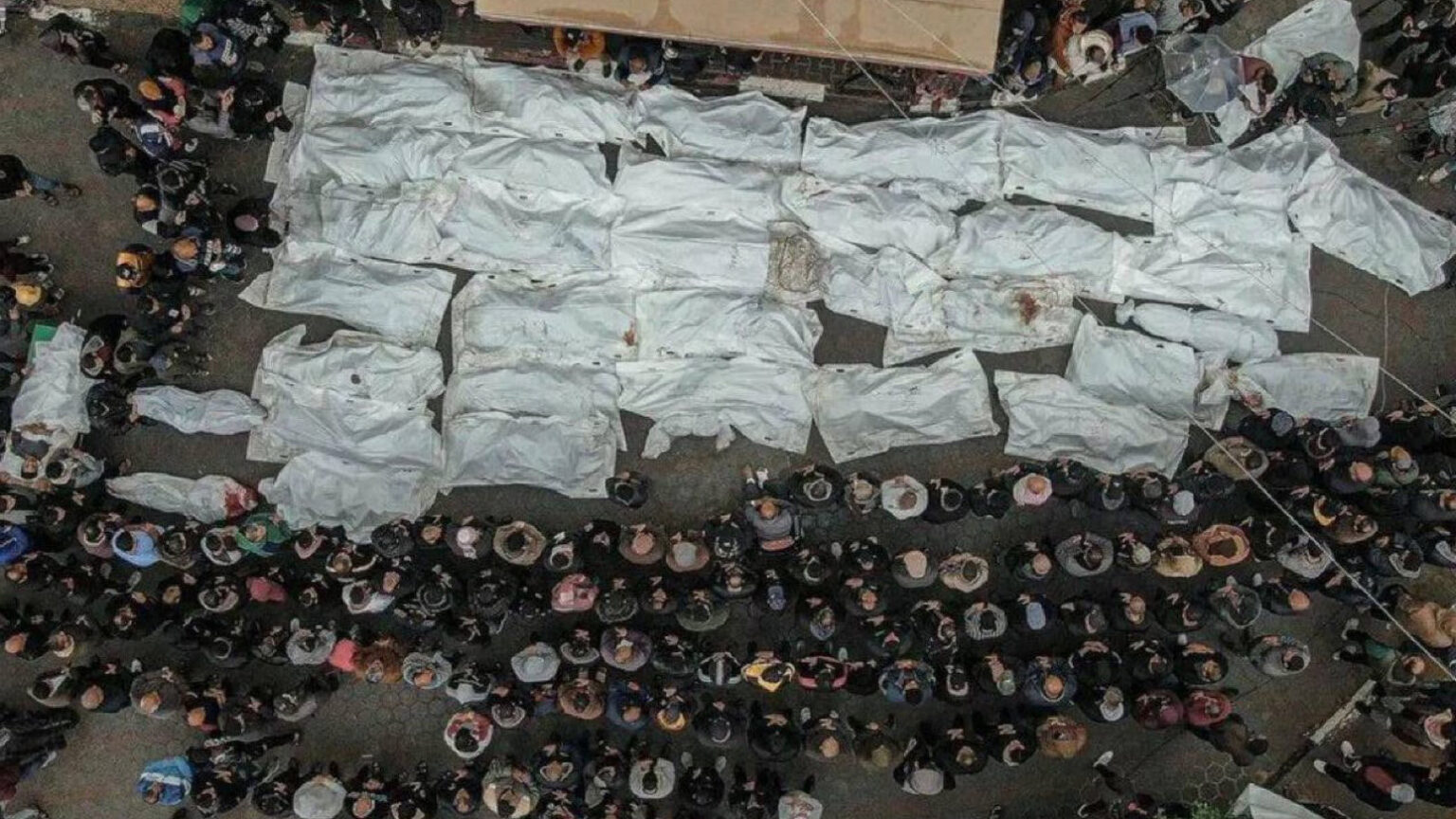Israeli Prime Minister Benjamin Netanyahu admitted on Monday that a “tragic mistake” had occurred following an Israeli airstrike in the southern Gaza city of Rafah. The strike, intended to target a Hamas installation, resulted in a massive fire that engulfed a tent camp housing displaced Palestinians, leading to the deaths of at least 45 individuals, including women, children, and the elderly.
The incident has intensified international criticism of Israel’s military actions against Hamas. Even some of Israel’s staunchest allies, such as the United States, have expressed significant concern over the mounting civilian casualties. Israel maintains that it strives to comply with international law despite facing increased scrutiny from global courts, one of which recently ordered a halt to the offensive in Rafah.
Table of Contents
Deadly Strike and Investigation
The Israeli military stated that the Sunday night strike aimed at eliminating two senior Hamas militants. However, the attack also caused severe civilian casualties, pushing the Palestinian death toll in the ongoing conflict above 36,000, according to the Gaza Health Ministry. This figure does not distinguish between combatants and non-combatants.
Netanyahu, addressing Israel’s parliament, expressed regret over the civilian casualties. “Despite our utmost efforts not to harm innocent civilians, last night, there was a tragic mistake,” he said. Netanyahu assured that an investigation was underway to understand the incident fully.
Eyewitness Mohammed Abuassa described the devastating aftermath in Rafah’s Tel al-Sultan neighborhood. “We pulled out children who were in pieces. We pulled out youth and elderly individuals. The fire within the camp was unbelievable,” he described.
Broader Reactions and Consequences
The attack has drawn sharp rebukes from the international community. French President Emmanuel Macron called for an immediate ceasefire, emphasizing the need for full compliance with international law. Italian Defence Minister Guido Crosetto criticized the bombings, warning that they are “spreading hatred” that will persist across generations. Qatar, a mediator in ceasefire negotiations between Israel and Hamas, noted that the Rafah strike could complicate the ongoing talks.
Neighbouring Egypt and Jordan, both of which have longstanding peace treaties with Israel, also condemned the strike. Egypt’s Foreign Ministry described it as a “new and blatant violation of the rules of humanitarian international law,” while Jordan’s Foreign Ministry labeled it a “war crime.”
Legal and Humanitarian Concerns
Israel’s military advocate general, Maj. Gen. Yifat Tomer-Yerushalmi, stated that the military regrets the loss of civilian life and is investigating the incident. She noted that Israel has initiated 70 criminal investigations into potential violations of international law during the conflict, including civilian deaths and conditions in detention facilities.
Despite these assurances, rights groups argue that Israeli authorities often fail to conduct thorough investigations into violence against Palestinians and that even when accountability is sought, the consequences are typically minimal.
International legal bodies have taken notice. The International Court of Justice recently demanded that Israel cease its offensive in Rafah, a ruling that lacks enforcement power. Concurrently, the International Criminal Court’s chief prosecutor is seeking arrest warrants for Netanyahu, Israeli Defence Minister Yoav Gallant, and three Hamas leaders for alleged war crimes.
The Path Forward
The conflict, which escalated following a deadly Hamas attack on Israel on October 7, continues to inflict severe human suffering. Hamas’ initial attack resulted in the deaths of approximately 1,200 people, mostly civilians, and the capture of around 250 hostages. Currently, Hamas holds about 100 hostages, with the remains of about 30 others still unaccounted for.
With 80% of Gaza’s 2.3 million residents displaced and widespread hunger affecting the population, the humanitarian crisis is dire. UN officials warn that parts of Gaza are nearing famine conditions as the conflict shows no signs of abating.

3 Comments
Pingback: Pier of help damaged amid Rafah massacre and widespread famine in Gaza - INPAC Times
Pingback: All Eyes On Rafah: The Viral Image - INPAC Times
Pingback: US Passes Bill Sanctioning the International Criminal Court in Denunciation of Netanyahu’s Arrest - INPAC Times